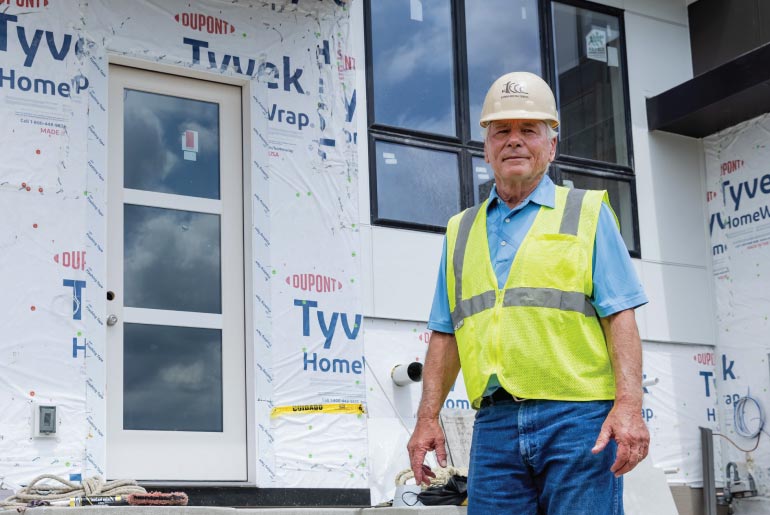

Tip Enebak, ’63, wanted to be a football coach. Instead, he took over the family business and created a highly successful operation that counts charity as one of its guiding principles.
On a rainy day in May, supporters of veteran services in the Twin Cities celebrated a major achievement. The veterans-focused Every Third Saturday organization held a grand opening for a new 10,000-square-foot building that represents a leap forward in its ability to help struggling vets.
Tom McKenna had started the charitable organization a decade earlier when he began handing out underwear and socks to homeless vets. As the mission grew, he and his wife, Jessi, eventually moved into a small storefront. When that building was sold, Every Third Saturday bought an abandoned gas station across the street, but it soon became clear that the building was too far gone to cost-effectively renovate.
That’s when Tom received a call that would change everything for the better. It was 2019 and the Minneapolis Star-Tribune newspaper had just done a feature story on Every Third Saturday. The next day, construction company executive Robert “Tip” Enebak, ’63, left a voicemail. Tom says he didn’t recognize the name, but he’s “certainly thankful I made that call back.”
Tip invited Tom and others from Every Third Saturday to a meeting at Tradition, the family of companies that had grown from a land development business Tip had taken over from his father shortly after graduating from the University of North Dakota.
Tip suggested that Every Third Saturday knock down the gas station and offered his company’s resources to help build new on the site. Tom says it was “surreal,” but he soon learned Tip was a man of his word. Tip not only got his company involved, but convinced some of his competitors to also chip in … leading to May’s grand opening.
“Our family has been extremely lucky in business; we’ve done well,” Tip said. “You look around at the needs in the community and people that are struggling and it’s only right to give back.
“And it’s hard. A lot of people drag their feet because they don’t know about the efficiency of the organization; they don’t know where the money goes. But when we do this, we get in the middle of it. What’s their vision? What can we do to make it work? How can we help? And how can we leave that organization in a lot better shape than they were when we first engaged? Once we get you up on your feet, then we’re going to move on and do something else for other folks.”
Says Tom, “There are still times where something in the building catches my eye or just walking up to the building and think, ‘My gosh, he [Tip] doesn’t realize how many lives he’s impacted through his generosity.’ I think he has a general idea, but I don’t think he understands how many souls he’s affected.”
My gosh, he doesn’t realize how many lives he’s impacted through his generosity.Tom McKennaVeterans Advocate, Every Third Saturday
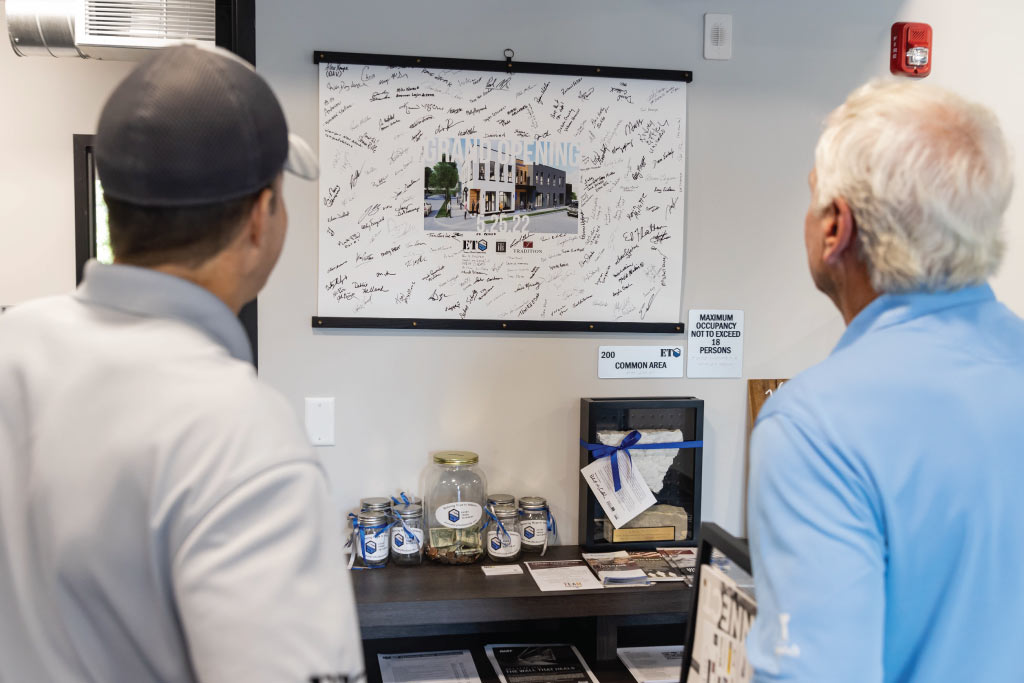
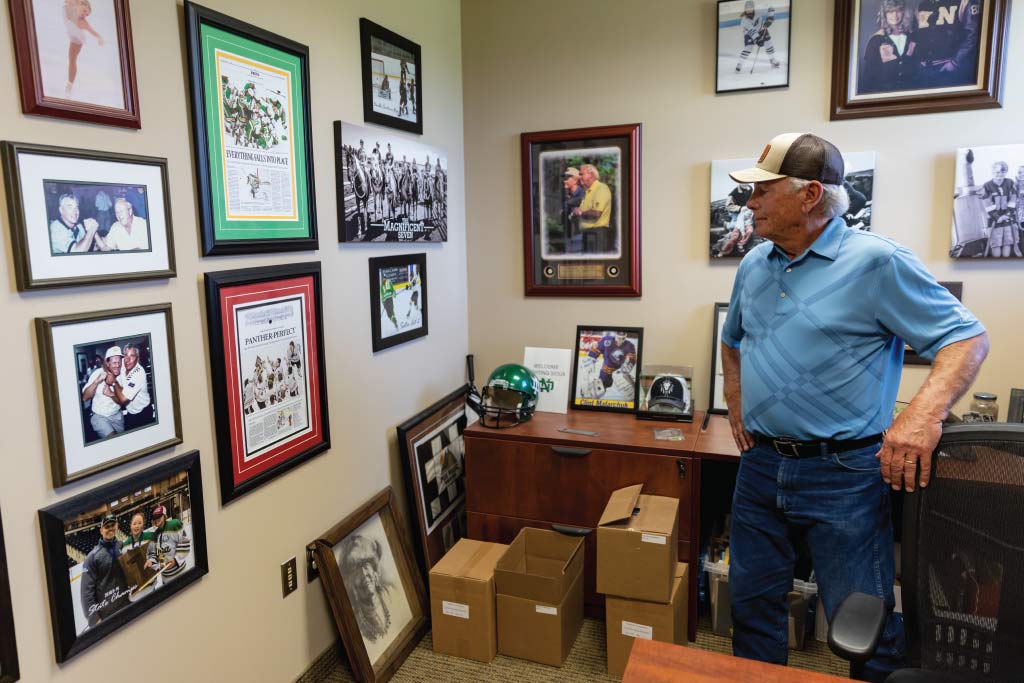
Tip Enebak played football at UND. Though he battled polio as a child and came to Grand Forks undersized at 5’ 10” and 185 pounds, Tip worked hard in the weight room and played offensive guard and middle linebacker. He was a co-captain as a senior.
He loved being part of the team, so 25 years ago, he and some teammates started a golf scramble in the Twin Cities for UND football alumni. UND Athletics recently took over planning to keep the annual tradition going into the future. “It’s just amazing when you have teammates that you’ve gone through ups and downs with, even if you haven’t seen them in 15 years, when you get together it’s like you never were apart. That camaraderie is still there.”
It was in the film review room that Tip would find the inspiration for his personal and, later, his company’s motto. He recalls that Coach Marv Helling showed a play where a defensive player bounced off several linemen before getting a sack. “He stopped the film,” said Enebak. “He says, ‘Look, that’s what we’re looking for: playing with reckless abandon.’ And ‘courage, commitment, focus, and effort pursued with reckless abandon’ became my motto and the business’s too. We try to instill that in our companies in a good way.”
After college, Tip spent one year as the freshman football coach at UND before taking a job as a football coach and teacher in Great Falls, Montana. That turned out to be a short-lived assignment as he was called home to take over the struggling family construction company.
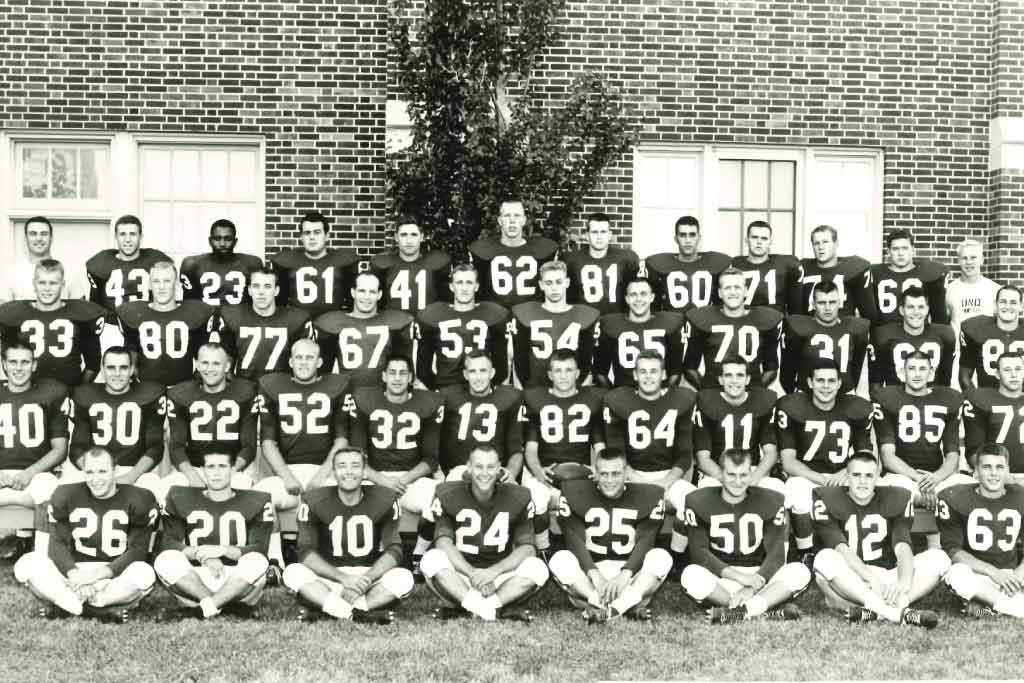
The 1961 UND Football team: Front row (left to right): Bruce Koppenhaver, Len Meyers, Dave Hummel, Joe Taylor, Curt Hirschey, Terry Syverson, Bob Glas, and Tip Enebak. Second row: Neil Bengtson, Dave Walker, Pepper Lysaker, Duane Breitling, Bill Haberkorn, Co-Captain Bill Leifur, Co-Captain Gene Tetrault, Charles Kankel, Gene Murphy, Dennis Hoffelt, Gary Sukut, and Neil Reuter. Third row: Gary Monson, Bruce Breitling, Jim Thompson, Dick Nelson, Joe Bachmeier, George Jaderston, Dick Perrin, Norm Swenson, Dan Neppel, Vern Hebert, and Jack Marron. Back Row: Equipment Manager Jim Rood, Jerry Danko, Eddie Stevens, Spencer Hellekson (not on team), Dale Bodine, Gary Allington, Terry Severson, Joe Bilotta, John Preiser, Jim Ramey, Lyle Gerdes, and Student Manager Bryan Hawley. Not Pictured: Maurice Paulsen, Louis Bosch, Gary Fabel and Jack Cameron.
Enebak Construction Company (ECC) had been started by Tip’s grandfather, Sigurd, in 1905. Though it had its ups and downs over the years, it began to thrive under Tip’s leadership. In 1974, the company moved dirt to create the 485-acre Minnesota Zoo. In the 1980s, ECC excavated the site for the Mall of America in Bloomington, Minnesota. ECC has also built a number of golf courses, including working with golf legend Arnold Palmer on King’s Walk Golf Course in Grand Forks (on the wall of his office are photos of him arm-wrestling Arnold and with another golf legend, Jack Nicklaus, in a headlock. “We call it ‘change order negotiations,’” says Tip).
In 1999, a development and mortgage company were brought in under the “Tradition” name. Tradition is now the umbrella for two land development companies, five financial services companies, and five homebuilding companies — all based in Minnesota.
Though he has turned over ownership to his children — now the fourth generation to run the company — Tip, at 81 years of age, still goes into the office every day. “I just try to help them with my experience. I still run some of the ECC jobs. Mostly, I try to stay out of everybody’s way, but still be helpful.”
Tip also remains heavily involved in the charities he supports. He is chairman of the board of directors of Tradition’s The Big T Foundation. The Foundation has funded affordable housing projects, a center that offers bereavement support to grieving children, veteran support agencies, and others.
This fall, The Big T Foundation brought together a half-dozen charities to see if there could be some benefit to working together on projects. Tip is encouraged by the dialogue and cooperative spirit that carried forward from that meeting. “We want to see if we can make two plus two equal six,” Tip says of the effort to create synergy among the charitable groups.
Another focus of Tip’s charitable spirit is his beloved UND Football program. He has given generously to the team and has encouraged others to join him. His most recent endeavor is the Teammates Forever endowment. Tip has agreed to match $100,000 in donations to the endowment fund with a $500 donation allowing a former player to nominate a fellow player’s name to be part of the endowment.
At a foundational level, the Tradition companies and their employees follow Tip’s charitable example. They lend their expertise to charitable projects while Tradition Capital Bank donates 10% of its earnings to charity. Tip says they strive to be a force for good in all that they do.
“I know where to go in our company to find answers, but it’s the people who are doing the work. I guess I’m the head coach.”
I know where to go in our company to find answers, but it’s the people who are doing the work. I guess I’m the head coach.Tip Enebak
Through all of his success, Tip still holds dear the people close to him. “Family is everything; without the support of my wife Diane and support of my children and now also my grandchildren, this would not be possible.”
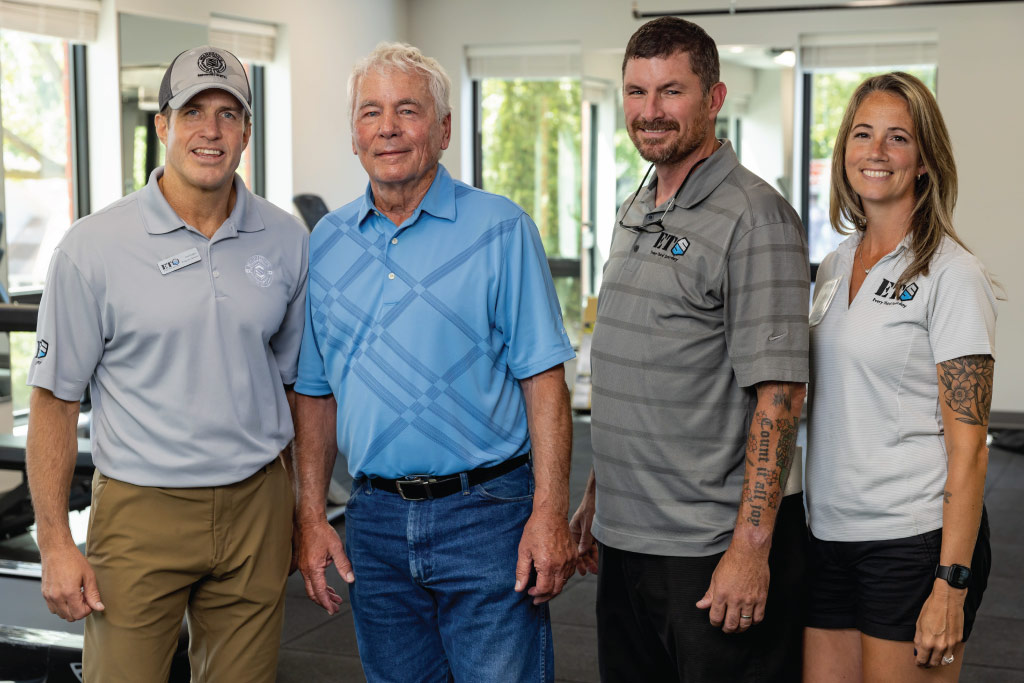
John Engfer is program director for The Warriors Path program, which is designed to empower veterans and their families to pursue a path of post-traumatic growth. He works with Tom and Jessi McKenna to manage operations.